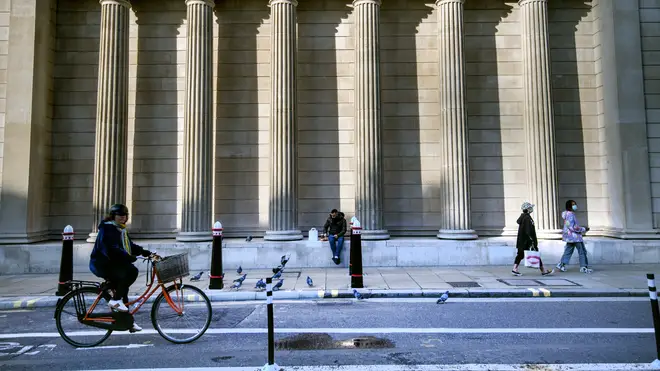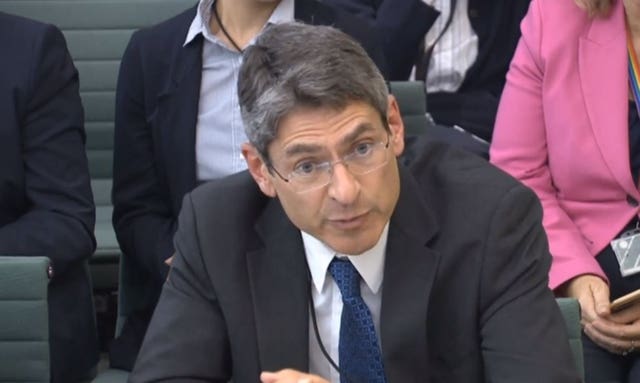
Matthew Wright 7am - 10am
24 November 2020, 12:44

Bank of England policymaker Jonathan Haskel said the MPC still has ‘plenty that we can do’ to help the UK economy.
A Bank of England interest rate setter has cheered “extremely positive” vaccine developments, but became the latest to warn a no-deal Brexit may pose a bigger long-term threat to Britain’s economy.
Jonathan Haskel – an external member of the Bank’s nine-strong Monetary Policy Committee (MPC) – said recent news that highly effective coronavirus vaccines are soon to be rolled out will be a “very big help” in boosting confidence among firms and households.
It follows Monday’s announcement that the Oxford University-AstraZeneca vaccine was up to 90% effective against Covid-19.

But speaking to the PA news agency, he said it was too early to say if it will significantly improve the Bank’s economic outlook for 2021, with UK prospects linked closely to the global economy and with a year-end Brexit deadline looming large.
He echoed comments made by Bank governor Andrew Bailey on Monday cautioning over a no-deal EU withdrawal.
Ahead of a talk on Tuesday at a virtual event hosted by the Abdul Latif Jameel Institute for Disease and Emergency Analytics (J-Idea), Mr Haskel said: “There’s no question that (a vaccine) has a positive impact on the economic outlook.”
“That’s extremely positive and should be a very big help to companies and households.”
He added: “If because of the vaccine the economy … comes back, then the effects of Brexit may turn out to be a more longer term problem for the economy.”
It comes after Mr Bailey told MPs on the Treasury Select Committee there was “no question” that a failure to reach agreement with the EU on a withdrawal deal would be worse in the long-term for Britain.
Time is running out for the UK and Europe to agree a deal before Britain leaves the EU single market and customs union on December 31.
The Bank’s chief economist, Andy Haldane, also told the Committee the second English national lockdown could see the economy shrink by around 4% in the fourth quarter – with up to a half of that fall due to the one-month restrictions.
But Mr Haskel said there was no “trade-off” between health and the economy and that there would be an impact on gross domestic product even without a lockdown.
He said: “It’s not true that a lockdown kills off activity – what happens is that it’s the fear of infection that kills activity.
“Even without a lockdown, if the infection rate gets too high, people are going to stop taking part in the economy,” he added.
“Lockdowns are a symptom of the fact there’s a high infection rate.”
Mr Haskel, who is professor of economics at Imperial College Business School, stressed the MPC was not out of firepower to help the UK economy through the second wave of the pandemic and any potential Brexit disruption.
He said: “We still have plenty that we can do.”
“Even if the vaccine is a physiological cure and there aren’t going to be any medical scars, then there may be some economical scarring if firms and consumers are worried about their future prospects, but the Bank can help with that,” he said.
The Bank launched another £150 billion of quantitative easing action earlier this month to help the economy weather the pandemic and experts are pencilling in a further round of bond-buying possibly as early as December.
The Bank is also looking into the feasibility of negative interest rates in the UK.